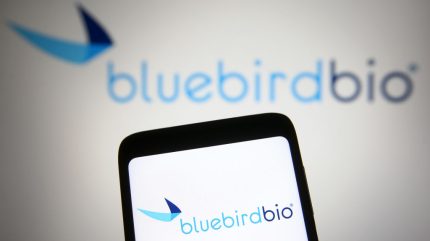

Bluebird bio (bluebird) has reaffirmed its support for a proposed acquisition by Carlyle and SK Capital after rival bidder Ayrmid failed to deliver a binding offer or secure financing by the extended deadline.
The announcement marks the second time Ayrmid has initiated discussions with bluebird without producing a fully financed proposal.

Discover B2B Marketing That Performs
Combine business intelligence and editorial excellence to reach engaged professionals across 36 leading media platforms.
Bluebird said it had engaged with Ayrmid for three weeks following the private equity firm’s unsolicited bid in March, including extending the original deadline to allow more time for due diligence and deal structuring. However, Ayrmid did not submit a definitive proposal by the agreed-upon 15 April cut-off date and has yet to secure the necessary capital to proceed.
As a result, bluebird’s board of directors is reiterating its unanimous support for the acquisition agreement with Carlyle and SK Capital, which was first announced in February 2025. The board is urging shareholders to tender their shares by the updated deadline of 2 May, extending the previous expiration date of 18 April.
bluebird’s board chairman Mark Vachon said: “Ayrmid’s proposal remains highly conditional. bluebird has engaged with Ayrmid on two separate occasions—neither of which has resulted in a binding or fully-financed offer. The board unanimously reaffirms its support of the previously announced agreement with Carlyle and SK Capital in the strongest possible terms.”
Bluebird has been under significant financial pressure for several years. The company currently faces the risk of defaulting on a $175m loan from Hercules Capital, secured in 2024 to support ongoing operations. Without a new capital injection, the board said, the company’s liquidity position remains precarious.

US Tariffs are shifting - will you react or anticipate?
Don’t let policy changes catch you off guard. Stay proactive with real-time data and expert analysis.
By GlobalDataCarlyle and SK Capital’s proposal offers $3 per share in cash, along with a potential additional payment of $6.84 per share if certain clinical and commercial milestones are met. Ayrmid‘s offer, disclosed last month, proposed $4.50 per share upfront and the same milestone-based payout structure. However, bluebird confirmed that Ayrmid has not demonstrated access to committed funding. bluebird noted that Ayrmid is continuing to seek financing and may provide further updates in the coming days.
bluebird’s financial position has deteriorated over time, despite achieving several key regulatory milestones. The company currently markets three US Food and Drug Administration (FDA)-approved gene therapies – Zynteglo (betibeglogene autotemcel) for transfusion-dependent beta-thalassemia, Skysona (elivaldogene autotemcel) for cerebral adrenoleukodystrophy, and Lyfgenia (lovotibeglogene autotemcel) for sickle cell disease – but has struggled with slow uptake, high costs, and reimbursement hurdles.
In 2023, the company suffered a major setback when the FDA denied a priority review voucher (PRV) for Lyfgenia. Bluebird had already arranged to sell the voucher to Novartis for $103m, but the agency ruled that the therapy’s active ingredient had previously been used in Zynteglo, for which the company had already received a PRV in 2022. The loss of the expected funds deepened bluebird’s financial strain.
To fill the gap, bluebird pursued emergency financing through a $150m public stock offering underwritten by Goldman Sachs and JP Morgan, as well as up to $100m in receivables financing from Alterna Capital Solutions.
The company has also undergone repeated cost-cutting efforts, including workforce reductions of 30% in 2022 and an additional 25% last year. Despite these efforts, bluebird’s therapies continue to face stiff competition. Lyfgenia is priced at $3.1m per patient, while a competing treatment, Casgevy (exagamglogene autotemcel) from Vertex Pharmaceuticals and CRISPR Therapeutics, is listed at $2.2m. Both therapies were approved on the same day in December 2023 to treat sickle cell disease.
Going public in 2013, bluebird has seen its stock decline sharply in recent years. Following the 16 April update, shares closed down by 7%.
Cell & Gene Therapy coverage on Pharmaceutical Technology is supported by Cytiva.
Editorial content is independently produced and follows the highest standards of journalistic integrity. Topic sponsors are not involved in the creation of editorial content.




